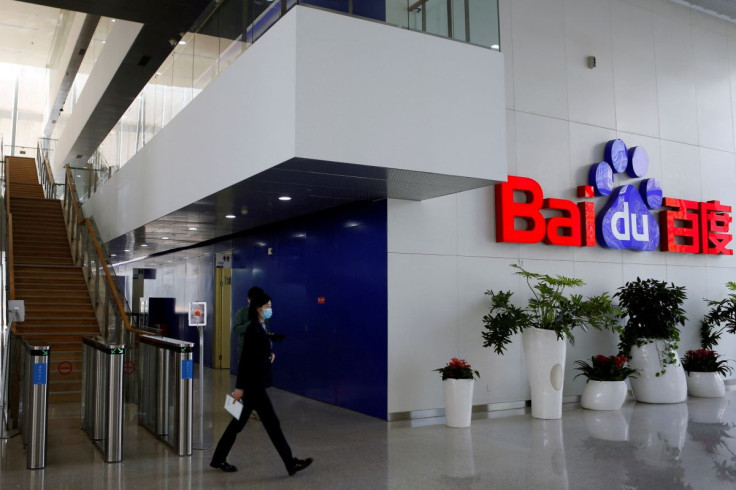Exclusive-Baidu In Talks To Sell Majority Stake In IQIYI, China's Answer To Netflix -sources

China's internet search engine giant Baidu Inc is in talks to sell its controlling stake in iQIYI Inc, China's answer to Netflix, in a deal that could value all of iQIYI at about $7 billion, two people with knowledge of the matter said.
Baidu, which owns 53% of iQIYI and holds more than 90% of its shareholder voting rights, plans to sell all its holdings in the Chinese video streaming services firm, the two people and another two sources familiar with the matter said.
While cinemas have struggled with COVID-19 lockdowns, China's online video market is booming. Domestic consulting firm Zhiyan forecasts 2022 revenue is set to climb to 163 billion yuan ($24 billion), up 17% year-on-year.
Nasdaq-listed iQIYI, the No. 2 player in China's video streaming market after Tencent Holdings' Tencent Video, has a market value of $4 billion. Baidu's targeted valuation of $7 billion for the whole company in its divestment would represent a price of about $8.13 per share compared with its latest close of $4.67.
The divestment plan, not previously disclosed by Baidu, comes after the firm deemed iQIYI to be a non-core asset, and as it seeks to sharpen its focus on developing its capital-intensive artificial intelligence and autonomous driving units, the first two sources said.
Terms of the deal have not yet been finalised and are subject to change, said the sources, who declined to be identified due to confidentiality constraints.
Baidu did not respond to a request for comment.
"This is purely market rumour," iQIYI said in an emailed statement to Reuters, without providing further comment.
The iQIYI stake has drawn initial interest from a number of financial sponsors and state-owned companies, said three of the sources, including Hong Kong-based private equity firm PAG.
China Mobile, the world's largest mobile network operator by subscribers and owner of streaming service Migu Video, is also among potential buyers, two of the people with knowledge of the matter said.
PAG declined to comment. China Mobile did not respond to a request for comment.
If Baidu achieves its valuation target, that would represent a premium of more than 100% to iQIYI's average share price over the past three months of $3.97. The streaming firm's shares have lost 70% in the past year amid a broader Chinese tech sell-off.
U.S.-listed shares of iQIYI were down 4.7%, while Baidu rose 4% in premarket trading on Wednesday.
Baidu, whose businesses range from internet search to electric vehicles, with expansion into cloud services, robotaxis and autonomous driving in recent years, has tapped Bank of America to work on the potential sale, the second pair of sources said.
Bank of America did not offer any immediate comment.
IQIYI HITS, LOSSES
The stake sale plan drawn up by Baidu, worth nearly $50 billion by market value, comes against the backdrop of China's regulatory crackdown since late 2020 on firms from technology, private education and other sectors, which hammered their shares and forced some to scale back expansion in non-core areas.
The Nasdaq Golden Dragon Index, which tracks Chinese companies traded on Wall Street, is down 50% over the past year.
Snaring iQIYI would give a potential buyer the chance to dive into the main market for full-length TV shows and movies.
Tencent Video and iQIYI, as well as smaller rival Youku, owned by Alibaba Group Holding, offer movies, drama series and reality shows - both original content and material bought from other producers.
iQIYI has made several hit drama series, including "The Long Night" and "The Wind Blows From Longxi". Its original variety shows, "The Rap of China" and "The Big Band", have also been major topics on social media.
On the flip side, cash-burning iQIYI has barely broken even in its 12-year history. In the January-March period, it delivered a quarterly profit for the first time since 2016, when it started to report quarterly earnings.
It recorded a net income of 169 million yuan ($25 million) in the first quarter of the year, compared with a net loss of 1.3 billion yuan in the same period a year earlier, but its revenue dropped 9% to 7.3 billion year-on-year.
© Copyright Thomson Reuters 2024. All rights reserved.







